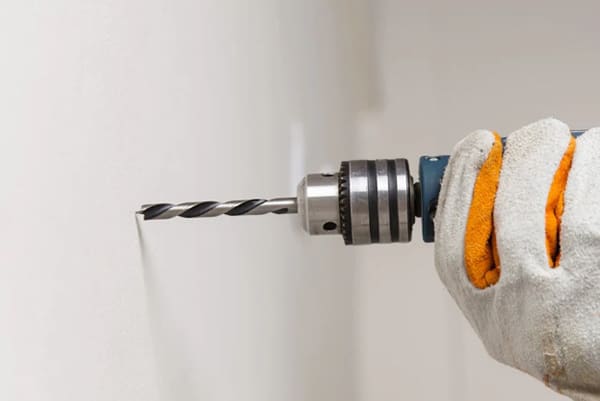When installing anchors into various surfaces, the choice of drill bit is crucial for ensuring a secure and reliable installation. The correct drill bit will help create the appropriate hole size and depth to accommodate the anchor and provide optimal holding power. This article will explore the different types of drill bits commonly used for anchors and offer guidance on selecting the best one for your specific application.
Factors to Consider
Before selecting a drill bit, it is essential to consider the following factors:
- Anchor Type: The type of anchor you are using will dictate the required hole size and depth. Expansion anchors, wedge anchors, and lag screws each have specific drilling requirements.
- Material: The surface you are drilling into will influence the appropriate drill bit. Different materials, such as concrete, masonry, or wood, have varying hardness and require different bit types.
- Bit Diameter: The diameter of the drill bit should match the specified size for the anchor you are using. A bit that is too small or too large can compromise the anchor’s holding power.
- Bit Length: The length of the drill bit should be sufficient to create a hole that is deep enough to accommodate the entire length of the anchor.
- Cutting Edge: The cutting edge of the drill bit should be sharp and in good condition to ensure efficient drilling and prevent excessive wear.
Common Drill Bit Types for Anchors
-
Masonry Drill Bits:
- Carbide-tipped: These bits are ideal for drilling into concrete, brick, and other masonry materials. The carbide tip provides excellent durability and cutting performance.
- Hammer Drill Bits: Designed for use with a hammer drill, these bits have a special flute design that helps remove debris from the hole. They are suitable for drilling into hard materials like concrete.
-
Wood Drill Bits:
- Twist Drill Bits: These are the most common type of drill bit used for drilling into wood. They have a spiral flute design that effectively removes chips and creates clean holes.
-
Metal Drill Bits:
- High-Speed Steel (HSS) Drill Bits: These bits are suitable for drilling into most metals, including steel and aluminum. They offer a good balance of speed and durability.
- Cobalt Steel Drill Bits: For drilling into harder metals or heavy-duty applications, cobalt steel drill bits provide increased toughness and wear resistance.
Tips for Drilling
- Start Slowly: Begin drilling at a low speed to avoid slipping or burning the bit. Gradually increase the speed as you drill deeper.
- Use Cutting Fluid: For drilling into metal, use cutting fluid to lubricate the bit and prevent overheating.
- Avoid Overheating: Take breaks if the bit starts to overheat, as this can cause it to dull or break.
- Check for Debris: Periodically clear any debris from the hole to prevent the bit from binding.
- Use a Pilot Hole: For larger anchors, drilling a pilot hole can help prevent the bit from wandering and ensure a more accurate hole.
By carefully considering the factors outlined in this article and selecting the appropriate drill bit, you can ensure a successful and secure anchor installation. Remember to always follow the manufacturer’s instructions for the specific anchor you are using.
Post time: 9 月-29-2024















